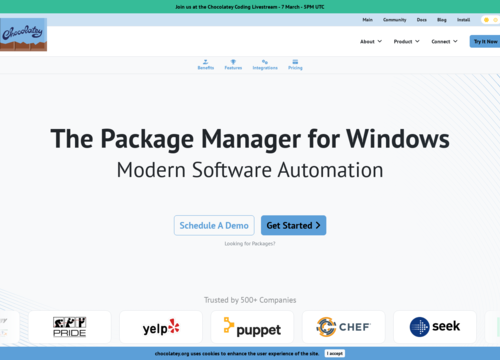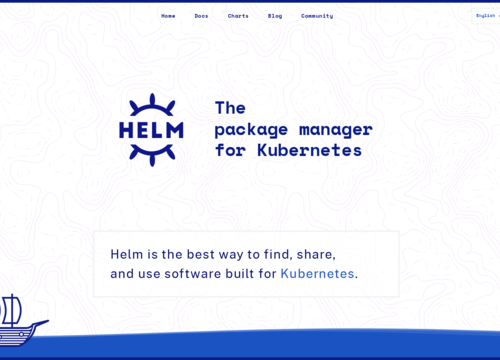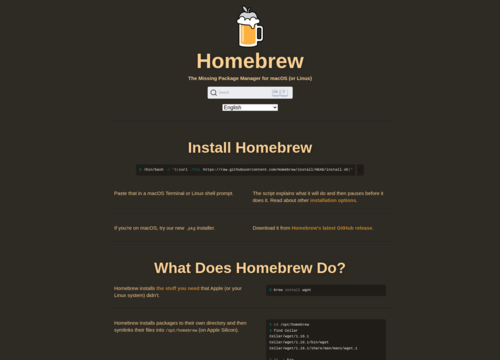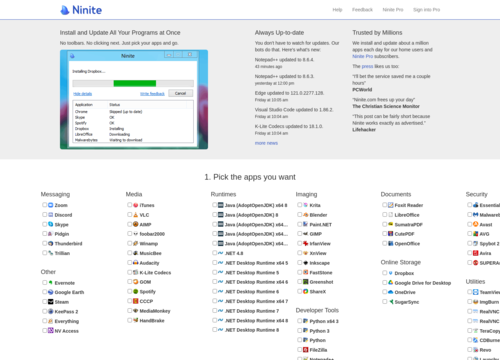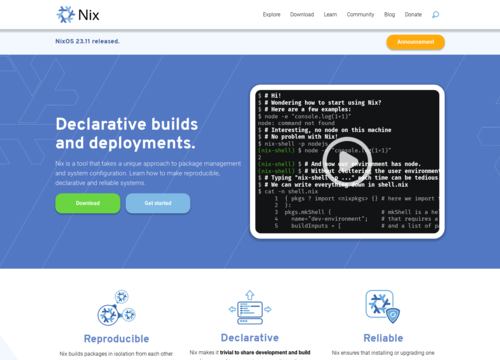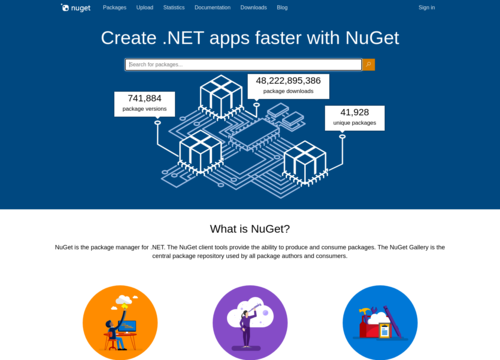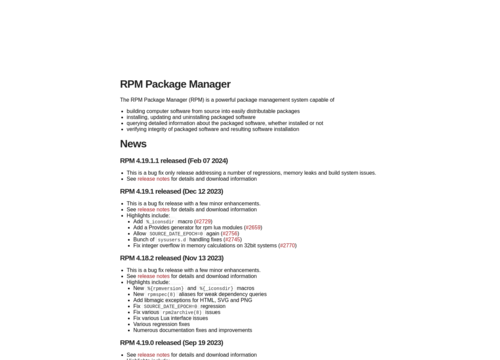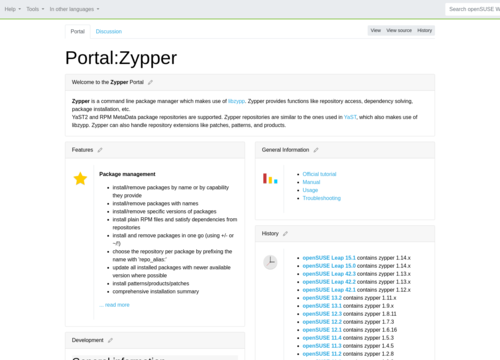Chocolatey
https://chocolatey.org/Chocolatey
Chocolatey is a package manager for Windows that was designed to streamline the process of installing, updating, and managing software on the Windows operating system. This approach increases the convenience and efficiency of package management, which is commonly found in Linux systems, for Windows users. Chocolacy works by using NuGet and PowerShell technologies to automate the process of downloading and installing software packages from the internet, handling dependencies, and configuring software appropriately.
At its core, chocolate simplifies the installation of software to a single command line instruction, making it possible to install programs without having to navigate through a series of installation wizards or manually manage installation files. This approach is particularly useful for system administrators and developers who often need to establish multiple environments or install updates for multiple applications efficiently.
Chocolatey has a large and growing repository of software packages available for installation. These packages are contributed by the community and are moderated to ensure reliability and security. Users can also create and host their own packages, allowing for the customization and distribution of internal or proprietary software within organizations.
Using Chocolacy, users can manage the entire lifecycle of their software installations. This includes not only initial installation but also upgrades, uninstalls, and version management. Chocolacy integrates with PowerShell to provide powerful scripting capabilities, enabling automated workflows and complex deployment scenarios.
The tool offers both a free open-source edition and a paid commercial version. The commercial version, Chocolatey for Business (C4B), provides additional features aimed at enterprise environments, such as enhanced package management capabilities, better security features, and dedicated support.
Beyond its basic functionality, chocolate production also supports various advanced features that cater to complex needs and scenarios. One such feature is the ability to create and manage custom package repositories, which can be particularly useful for organizations that need to control and distribute internal software tools and updates securely. This allows companies to maintain an internal repository of approved software packages, ensuring that only vetted and compliant software is installed on company systems.
Another significant advantage of chocolate production is its community-driven nature. The vast repository of packages available through chocolate is largely contributed by the community, which means that a wide variety of software, from widely used applications to more niche tools, is readily available for installation. The community also plays a crucial role in maintaining and updating these packages, ensuring that they are current and functional.
For developers and IT professionals, the integration of chocolateitey with automation tools and continuous integration/continuous deployment (CI/CD) pipelines is a critical feature. It can be seamlessly integrated into various automation servers and tools, enabling automated software installations and updates as part of development workflows, testing environments, or deployment processes. This integration streamlines the software management process, reducing the potential for human error and ensuring consistency across environments.
Chocolacy's command-line interface (CLI) provides a powerful yet simple syntax for managing software packages. Commands such as choco install, choco upgrade, and choco uninstall allow users to perform software management tasks with minimal effort. Additionally, the Chocolatey offers detailed logging and reporting capabilities, which are invaluable for troubleshooting and auditing software installations and updates.
Despite its many benefits, users of chocolate should be mindful of security and reliability when using packages from public repositories. While the Chocolatey community and moderators make efforts to ensure the quality and safety of packages, users should practice due diligence by reviewing package sources and considering the use of private or internal repositories for sensitive or critical environments.
In conclusion, the use of chocolate represents a significant step forward in managing software on Windows systems, offering a level of efficiency, automation, and control that was previously more challenging to achieve. Its wide adoption among developers, system administrators, and IT professionals underscores its effectiveness and the value it brings to software management practices on Windows platforms.




















